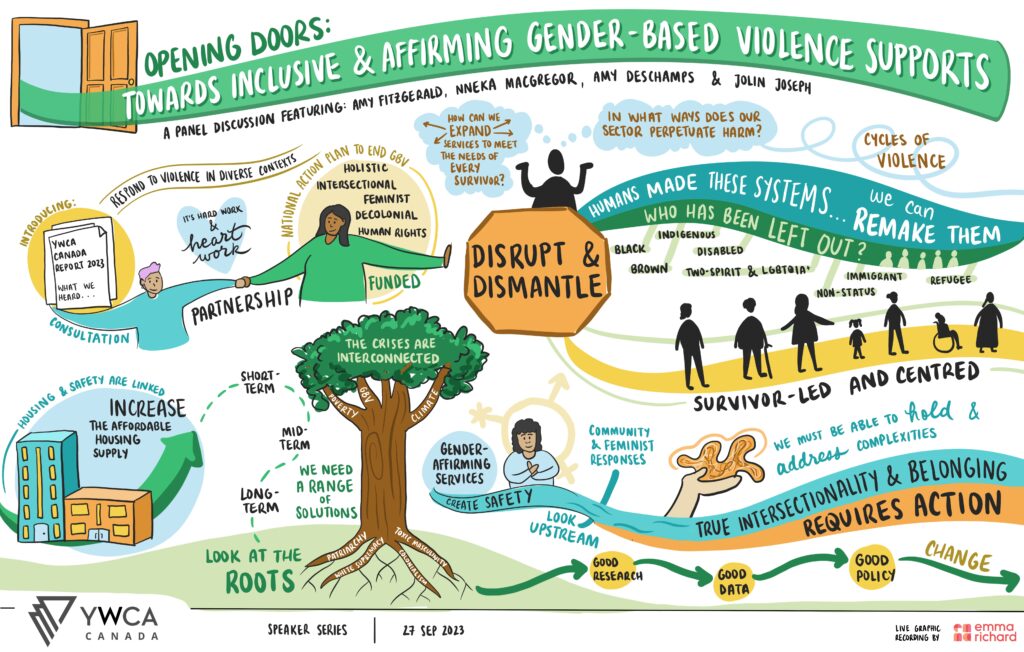Read: 3min
On September 27th, 2023, YWCA Canada hosted the first instalment of our new speaker series exploring enduring challenges in preventing and responding to gender-based violence across Canada. Our panelists had a dynamic discussion on inclusive survivor-centered models of care and service delivery that recognize and respond to the distinct needs of all survivors, particularly those who face increased barriers to safety. Our expert panelists shared insights, experiences, and strategies for creating a more inclusive and supportive framework for all survivors of gender-based violence. During this session, participants deepened their understanding of what meaningful investments in gender-based violence prevention and responses should and can look like across Canada.
This event was also the community launch of YWCA Canada’s National Research Report, “What We Heard: Survivor-Led Strategies to Inform the Implementation of Canada’s National Action Plan to End Gender-Based Violence” which can be read here.
Some of the key takeaways shared by our speakers Nneka MacGregor, Amy FitzGerald, Amy Deschamps and Jolin Joseph include:
- Nneka MacGregor: People and organizations use survivors as a barometer for funding. Often consultation with survivors is done to get more money not to center their voices, they do not listen to survivors, but exploit them. It is vital that our work be survivor-led and survivor-centered to end this pattern of harm.
- Jolin Joseph: Anti-violence work can also be a site of deep harm; extended through our interactions, our policies, and our practices. This harm keeps things out of reach or not responsive to the needs or emerging priorities of all those that truly need it.
- Amy FitzGerald: Folks come into shelters at very precarious points. Once they get stabilized, they cannot move because there are no long-term safe and affordable housing options available to them. There needs to be both structural changes and immediate steps to end this gendered housing crisis through grassroots, community, and provincial and territorial levels of action.
- Amy Deschamps: Gender-based violence also operates at a structural level, and at its root is intended to enforce and impose colonial notions of power and control, as well as societal expectations of gender roles and norms. Only a system that supports and affirms all ranges of gender expressions can really be truly inclusive and intersectional.
Insights from this thought-provoking exchange were incorporated into a graphic recording by artist Emma Richard.
Other core considerations from the session:
- The systems that we currently have and the way that they operate were built by humans and have the same social inequities we experience woven into their foundations. In doing this work, we must be aware of this and disrupt and dismantle these systems and create ones that benefit everyone.
- Wraparound and holistic approaches that span the intersections of an individual’s identity in its foundation widens the scope to enable this sector to serve individuals who are often at the margins of the Gender-Based Violence sector.
- We currently have short term solutions for long term problems, there is a need to establish long-term operational funding to gender-based violence services and diversified designs.
- The lack of intersectional research, specifically research on Indigenous women, girls and two-spirited experiences, is concerning because without good research, you don’t have good data. Without this data, you don’t get effective policies because these individuals are erased.
